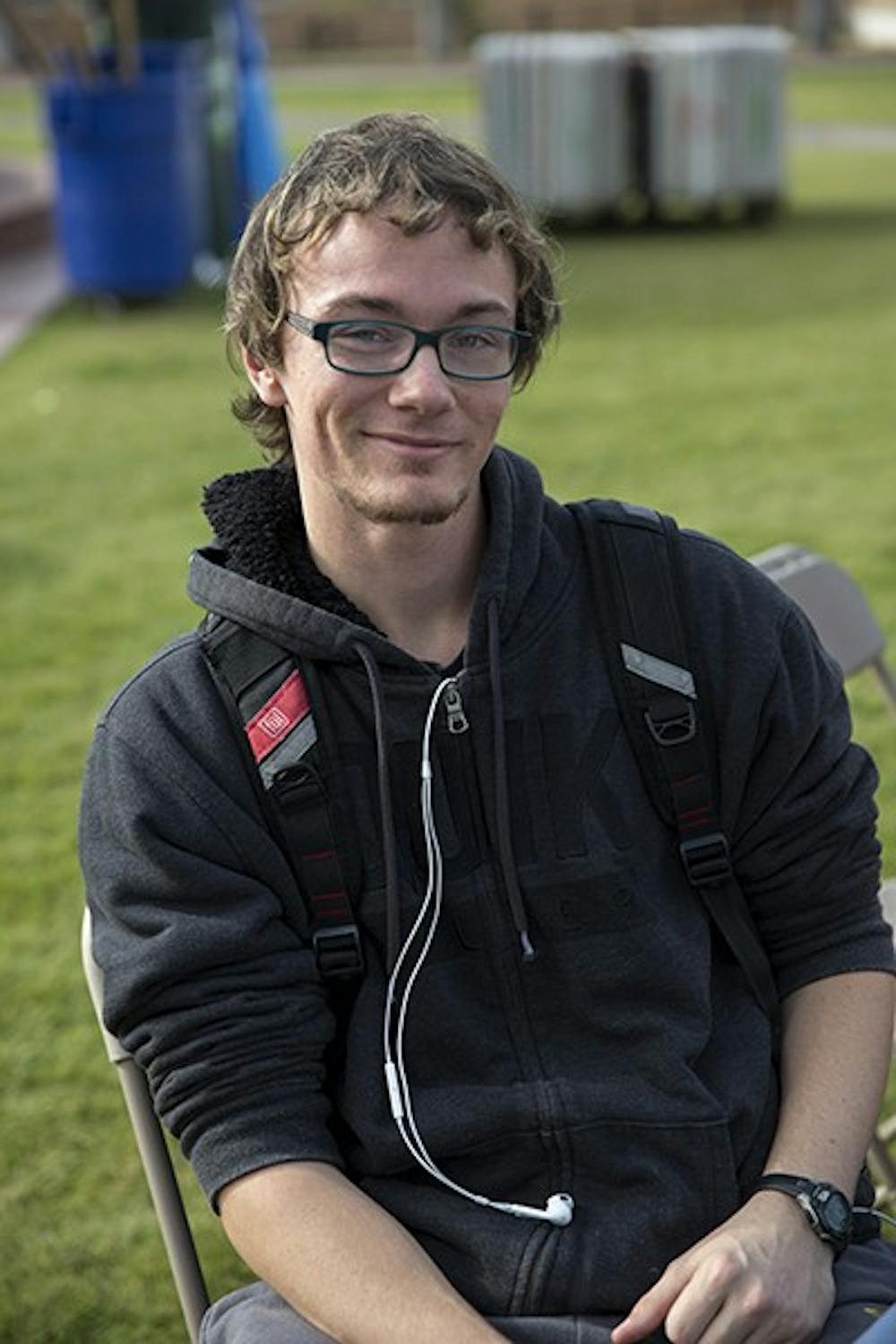 ASU president Michael Crow addresses The State Press editorial board during a meeting on Tuesday, Nov. 25, 2014. Crow approved a set of recommendations from a sexual safety task force on Nov. 21. (Photo by Andrew Ybanez)
ASU president Michael Crow addresses The State Press editorial board during a meeting on Tuesday, Nov. 25, 2014. Crow approved a set of recommendations from a sexual safety task force on Nov. 21. (Photo by Andrew Ybanez)The U.S. Department of Education announced in May that ASU, along with colleges across the nation, was under investigation for the way it handled reported sexual violence.
The inquiry was sparked by a complaint filed in 2012 and augmented by other complaints filed against the University.
Jasmine Lester, an ASU alumna, was one of the complainants named in the investigation. Lester said she filed her complaint last summer on behalf of herself and several other students against teachers in Barrett, the Honors College.
Read more about complaints in Barrett, the Honors College.
In August, ASU President Michael Crow named a task force designed to combat sexual violence on campus and grow a “culture of respect” at ASU. The task force is comprised of faculty, staff, students, police officers and community members.
The task force came up with a list of goals and recommendations, which Crow approved Nov. 21.
ASU spokeswoman Julie Newberg said while ASU cannot comment on the federal investigation in progress, ASU is working to implement new regulations to keep students safe.
“The task force recommendations, some of which have already been implemented, focus on ways to strengthen education and awareness efforts, enhancements to support services and resources for victims of sexual misconduct, and ideas on enhancing existing and develop new partnerships with key organizations and agencies working on issues of sexual violence,” Newberg said in an email.
According to a report released by the task force, the group decided the University will undergo cultural and structural changes. These changes include the way sexual violence on campus is reported, as well as identify national examples to follow when handling the case's repercussions.
The task force also recommended employing a single official who would be in charge of reporting the cases on behalf of the entire university.
Among other recommendations were: create a class where students could receive university credit, commission an artist to render an interpretation of sexual violence to be displayed on campus, create a simpler way of reporting sexual violence, host a TED talk, cross-train all employees who deal face-to-face with students about sexual violence and increase university communication about alcohol and drugs and their interplay with sexual violence.
In a meeting with The State Press editorial board, ASU President Michael Crow acknowledged the need for improvement in handling sexual assault cases and keeping the campus safe for students.
Crow touted the newly approved recommendations done by the task force, in addition to voicing his support for “yes means yes” legislation, which requires a person to affirmatively consent to sexual conduct, rather than the perception that an absence of a “no” means the conduct is consensual.
However, Lester, the founder of Sun Devils Against Sexual Assault, said the task force is more reactive than proactive.
“I think the task force is damage control,” Lester said. “When the federal government comes around, it will be a way for administration to say it is doing something about the issue. I have a hard time believing anything until I see some real action.”
Lester said she is familiar with complaints dating back to 2001, so she is skeptical about reform that comes 13 years too late for some.
One of the early results from the task force is a mandatory online course called “Consent and Respect,” which students can find on the myASU page.
“The module is designed to enhance awareness of sexual violence, intimate partner violence and stalking and their impact on college students, the importance of consent and respect in sexual situations, prevention and risk reduction strategies, as well as critical information on how to help a friend if she or he is a victim,” Newberg said.
Lester said while starting a conversation on campus about sexual violence is always a good step, there is too much information to learn about consent and sexual violence than can be retained from an online seminar.
However, the task force also recommended incoming freshmen in ASU 101 style classes will also receive training as part of the freshman curriculum.
“If we really want to solve the problem of rape culture on campus, there needs to be awareness, accountability and enforcement,” Lester said. “It should be like plagiarism. If you plagiarize, you get expelled. People need to know if you rape someone, you will be expelled if you’re a student and fired if you’re a teacher.”
Reach the reporter at cvanek@asu.edu or follow her on Twitter @CorinaVanek
Like The State Press on Facebook and follow @statepress on Twitter




